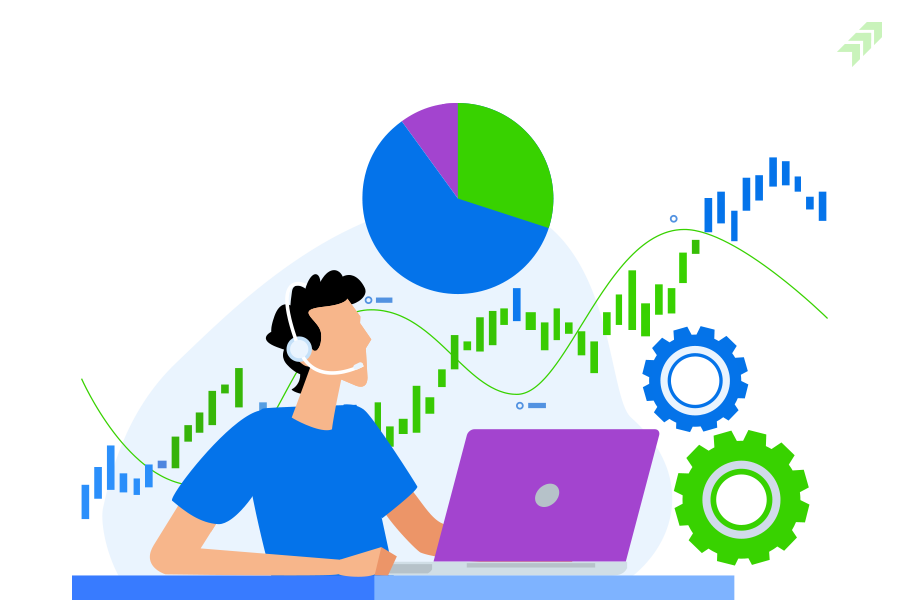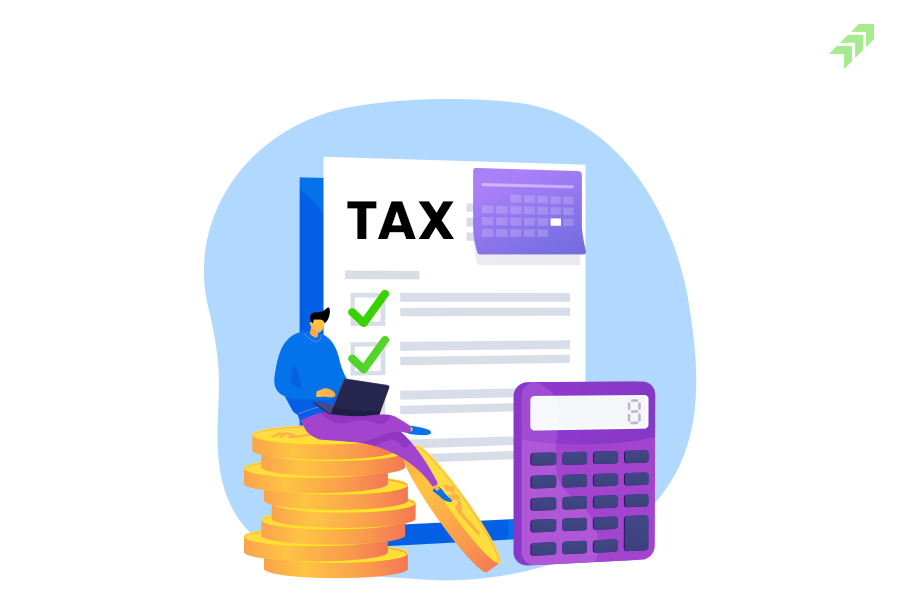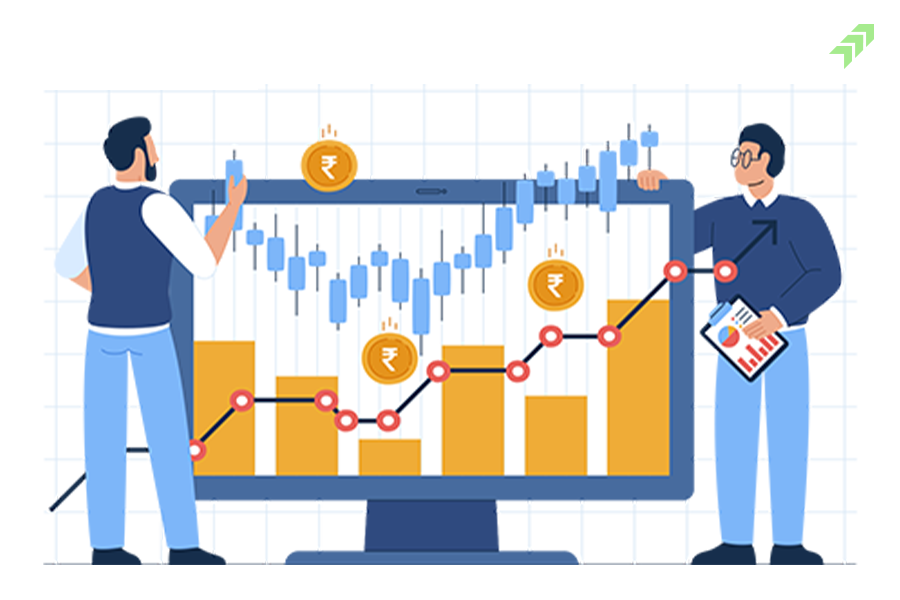Consider a scenario in which you have surplus funds that you would like to invest but have been unsuccessful in identifying a viable alternative to conventional banking products that offer the potential for multi-year returns. One of your acquaintances recounted the outcomes of a stock market investment he had undertaken. That piqued your curiosity, so you proceeded to investigate further in order to obtain further insights. You discovered that trading and investing in the stock market requires both a trading and Demat account.
Brokers and speculators played a critical role in ensuring the efficient functioning of the stock market prior to 1991. On the trading platforms, traders used to shout orders to purchase and sell securities. Every security transaction was executed in physical format, substantiated by share certificates and a single sheet of paper. The risks associated with paper share certificates led to fraudulent activities, delayed deliveries of securities, extensive documentation preparation, losses of share certificates, and abortive transactions.
Seeing the frauds and burden on the parts of broker to keep record of share certificate up to date made government thinking and force them to take step toward dematerialization. So in 1996, they took the first step in direction of dematiriasation with the passing of the Depositories Act by India's Parliament, which meant that physical shares would be turned into digital assets. The National Security Depository Limited (NSDL) was the first depository to have played significant role in developing and maintaining infrastructure to make the process of converting securities into demat form more streamlined and simple. Central Depository Services Limited (CDSL) was founded several years later, in 1999.
Adoption of dematerialization of securities led to advent of trading account.
Also read: The Ultimate Guide to Finding the Best Discount Broker in India for Your Investment Needs
What is a Trading Account?
A trading account is a platform offered by a broker to its customers dealing in the stock market to buy and sell securities electronically without the restriction of carrying or bidding for shares in the physical market. The trading account is like a hotline between your Demat account and your bank account. When an account holder wishes to buy a security from the cash market, all he or she has to do is login to their trading account. Fill in all the information, like quantity, price, etc., fund your trading account with the amount needed to buy the securities, and hit the buy button. The respective securities would be credited to your demat account on the T+1 day of settlement. Similarly, when an investor wishes to sell his holdings, he just has to authorize those securities, click on sell, fill in the details, and your securities will be sold at a reasonable price. The amount will be visible in your trading account in the T+1 settlement.
Also read: Objectives of trading account
Why Do I Need a Trading Account?
As you have understood the meaning of what a trading account is, it is vital to know the purpose behind its existence. Historically, in an age prior to trading and demat accounts, clients would submit instructions to their brokers to acquire certain shares at a set price and quantity. Physical trading was always a mess, from record-keeping to the settlement procedure. With the development of payment methods, technology, and computer applications, brokers and exchanges established online platforms so that market participants could transact in a transparent manner. This led to the emergence of a trading account, from which clients can place their orders online through a registered stock broker. From a layman's viewpoint, it seems like the customer is putting the order directly, but in reality, the client is not directly hitting the order with the exchange; rather, it is done by the brokers on behalf of their consumers. The stock broker works as a catalyst to complete the response between the client and the exchange.
Now that you are wrapped up with the notion of a trading account and why a trading account is essential, let’s continue forward and grasp the process of establishing a trading account with a broker.
Also read: Features & Benefits of Demat Account
The process of opening a trading account involves:
How to Open a Trading Account?
- Choose a broker with whom you wish to open a trading account. A suitable broker should offer various investment segments like equity, commodities, currency, and mutual funds. The broker should charge a low brokerage fee and offer multiple tools for assisting in your trading and investing. Know about the various platforms that the broker provides, like Smartphone applications, desktop applications, API integration, and value-added services, before finalising a brokerage.
- After selecting a broker and finalizing on all the tools that a broker offers, move ahead with the process / paperwork required for opening a trading account. These days most brokers opens demat account along with opening a trading account, as demat account is necessary for keeping the securities. You will also have to submit identity proof, residence proof and in some cases proof of income for operating in different segments.
The following are some of the documents you must have in hand when opening a trading and demat account online or in person.
What is a KYC Form?
KYC (know your client) is carried out every time, whenever a citizen needs to make changes in its government documents or has to apply for any commercial activity like opening a trading account. Earlier Kyc was done physically, but today with the advent of tech and companies finding safest way possible to cut cost by maximizing use of technology, officials have come up with new techniques to do kyc using internet means.
An eKYC (Electronic Know Your Client) is an automated online procedure that allows corporate and officials to complete client identification verification digitally, giving an alternative to traditional physical document-based approaches. The KYC requirements request you provide all the relevant information linked to your identification and the same is verified by the brokerage house before acknowledging you as a customer and activating your trading and demat account .
Documents for Proof of Identity
- Voter ID Card
- Aadhaar Card
- Passport
- Driving license
- Any other ID card issued by the state and central government
Documents for Address Proof
- Aadhaar card
- Ration card
- Utility like gas and electricity bills
- Voter ID card
- Driving license
- Bank passbook
Documents for Income Proof Documents
- Copy of Income Tax Return filed with the IT department
- Form 16 and copy of salary slips
- Bank statement for the last 6 months
- Demat account holding statement
- Annual income audit by a CA
- Post the submission of the documents, the broker will conduct a telephonic KYC verification or video kyc verification. During a E-kyc, the account opener will have to either record a small video or converse with the person verifying the details.
- The account would be operational for you to start with investment or trading journey as and when it is approved by the broker after doing all the verifications. If the account holder opted for trading in derivative segment aka, futures and options, it will usually take 1-2 business days at ton the part of broker to verify your details.
- Once the broker has verified your details, you will get the login id though mail through the broker. At last fund your trading account to make the first trade.
Types of Trading Accounts in India
While opening a retain account, an investor is asked to choose between various investment and trading segment. So what types of and how many types of trading account s are there. As we have discussed earlier, trading account is used for placing buy and sell order in various segment be it mutual funds, equities, commodities, currency, Futures & option (F&O), bonds etc. so an investor have to choose the segment, in which he has to trade in.
Different types of trading accounts
Trading accounts came in multiple varieties, tailored to the type of usage you wish to indulge in.
- Equity trading account: - this is the basic trading account. First time entrant to stock market or long term value investor start their journey by opening cash segment or equity only with mutual funds segment activated trading account. In the phase of learning small investors don’t want to lose their hard earn money by involving into option. In cash or equity segment, an investor has to deposit amount equivalent to the value of security they want o purchase. Long term investor doesn’t have to square off their position by the end of the session.
Also read: Benefits of Investing in the Stock Market
- Equity and Derivatives Trading – Experienced trader, who have mastered picking stock in cash segment, are well aware of market movement and business trend usually enters into F&O segment. You must have heard traders sharing their experience and warning beginners to stay away from derivatives:- futures and option (F&O) because options have the ability to wipe out all your hard earned money and even put you under big debt in just a matter of seconds.
Also read: Options Trading for Beginners
- Commodity Trading Account – commodity market isn’t restricted to just a region but is traded all over the world, both in physical and electronic form. Commodity trading posses’ greater volatility compared to other asset classes to market due to its basic fundamentals and number of reasons like demand and supply, production hindrances, scarcity and what not. Even though commodity trading is as simple as trading in equities keeping aside the concepts & technicalities, a separate trading account is needed for same. The practice of having a separate kyc for opening trading accounts is continuing even though commodity and equity regulator are same, as few years back it was brought under the regulation of the SEBI.
Also read: Equity or Commodity which is better for Trading or more Profitable?
- All-in-one Trading Account
Now days, brokers open all in one trading account which offer client to invest and trade in number of investment horizon starting for IPO investments, equity, mutual funds aka SIP’s, trading in F&O and making debt investments.
Where to Open a Trading Account?
Now that you have learned what a trading account is, the use of a trading account, and the paperwork required for opening a trading account, we will learn where we should open a trading account. The question of ‘where to open an account’ is the same in every other situation. You should check the cost, facility provided, complementary services process, customer service in resolving the error, and many more. Let's discuss the things that should be kept in mind before opening a trading account.
Here are some considerations for choosing a good stock broker:
- Brokerage and Other Key Charges: The first and foremost thing that any trader or investor sees before buying a product or availing of a service is its fee and charges. Brokerage firms facilitate the buying and selling of financial securities, and in exchange, they charge a small fee. Earlier in the time of the full-service broker, this service fee, also known as brokerage charges, was a percent of the overall contract value, called commission, but after the introduction of zero-discount brokers, this cost was significantly lowered to a flat Rs. 10 to Rs. 20 per order. So you should shortlist a broker that offers a low brokerage plan without compromising on other fundamental requirements.
- Research: The second major thing is the research it offers, be it a fundamental outlook on a security or a technical intraday or short-term call. A client should check out the accuracy and quality of the research, the insights its research has, and the efficiency of their trading platforms and apps. Most discount brokers, in the race to cut costs, don’t offer research services to their clients, but Moneysukh offers you research services at competitive brokerage plans.
- Reviews and Reputation of the Brokers Reputation precedes the personality of the person behind it, just as wise reviews and comments posted online and reviews written by its customers precede its reputation. Customers should check the background of the stockbrokers and their performance record by going through customer reviews, which provide good insight into the services offered by a broker.
- Types of trading platforms being offered: A wide range of investors prefer different platforms. For example, professional traders prefer to have a proper desktop setup platform through which they can trade directly; however, new-age traders prefer to have everything on their hands, so they prefer something related to smartphone applications. So it is an important consideration to have a platform that suits your trading needs.
- Level and Type of Customer Service: Changing your primary broker, getting off a platform in your comfort zone, or making a fresh start with a new broker is usually time-consuming in the beginning. Software and applications often encounter problems; those are the times that test the mettle of the support staff in handling the clients and resolving their queries. Although a broker does not introduce new tools to its clients regularly, its support staff should be capable of handling and resolving their queries as early as possible.
- Quality of Advisory Services: Big advisory firms have hired analysts for every investment domain, be it reality, bonds, or alternative investments. Well, you can’t expect a discount broker to have every domain analyst, but you can surely check whether their research analysts have ages of experience in the field of investment and know about various domains and their accuracy in depicting the market.
- Educational Tools: This one is for newcomers to the stock market. A newcomer should check to see if their broker is conducting regular webinars on the platforms and productions they are offering. Do they have a proper resource section for learning about various investment horizons?
Also read: Read most popular categories of share market, sorted by popularity
These considerations will help you choose the best brokerage house for opening a trading account and starting your investment journey. In this process, do not get lured by hefty discounts and low commissions only. Instead, check the overall track record of the brokerage and the quality of services offered by it. The option to invest in multiple investments by opening a single trading account is quite lucrative and must be considered.


















